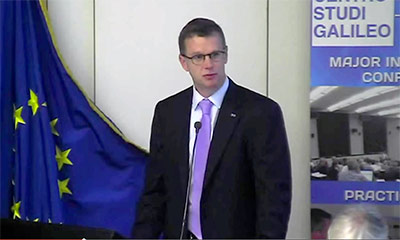AHRI calls for US energy efficiency reforms
11th June 2016
USA: The AHRI has called on the US government to reform current energy efficiency policies to reflect new technologies and economic realities.
Speaking before the before the US House of Representatives subcommittee on energy and power, yesterday, AHRI president & CEO Stephen Yurek called on Congress to reform the Energy Policy and Conservation Act (EPCA), the law governing product energy efficiency standards, which is nearly 40 years old.
Yurek claimed that consumers were paying a heavy price, both in real monetary costs and in comfort and safety because of the continuous cycle of Department of Energy (DOE) rulemakings that result in higher and higher energy efficiency levels.
“When new equipment costs more than consumers can afford,” he said, “they find alternatives, some of which compromise their comfort and safety, while saving less energy or no energy at all.”
Yurek told subcommittee members that while the Clinton Administration issued six major efficiency rules over eight years, the current administration issued eight such rules in 2014 alone. Claiming this to be a record, he said the DOE’s unified agenda indicated that between 2015 and the end of the administration, 11additional major efficiency rules could be expected.
Realistic and justified
Among its demands, the AHRI has called on Congress to ensure that new efficiency standards are justified and to institute a more realistic standards revision schedule.
Citing several examples of rulemakings in which job losses were forecast, Yurek charged that “American jobs are being lost – many of them exported – in part because of ever more stringent efficiency regulations.” He also cited examples of what he termed “unrealistic assumptions” made by DOE to justify rules he said were not “economically justified for consumers,” including a proposed rule for commercial packaged boilers that he said would save just 0.8% more energy than the existing standard, while costing manufacturers up to $24m to implement.
In setting new standards for commercial refrigeration equipment, Stephen Yurek said that regulators had justified the economic impact of higher efficiency levels by assuming that no matter how much a product increases in price, demand for that product would never decrease.
“In fact, we have seen in our own research that consumers will look for cheaper, less efficient alternatives to meet their heating and cooling needs to avoid paying a higher price,” he said.
In addition, in the same standards rule (Final Rule 79, Federal Regulation 17,726 (March 28, 2014)), Yurek said that the DOE estimated that roughly half of end users (convenience stores, supermarkets, delis, bars, and restaurants) would actually lose money if the standard were implemented, and yet it went ahead anyway.
To remedy the situation, Yurek called on Congress to require DOE to convene stakeholders to discuss and recommend a new regulatory framework, one that would stress flexibility and enhanced technical and economic justifications for new rules, while also maximising transparency and stakeholder engagement. Yurek’s full testimony can be found here.







